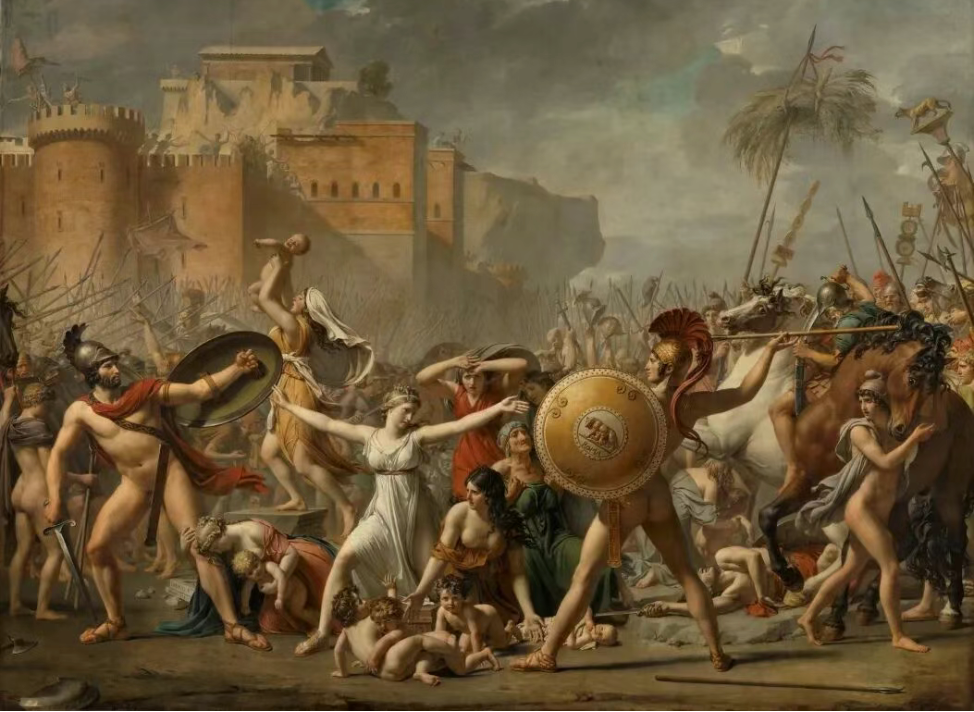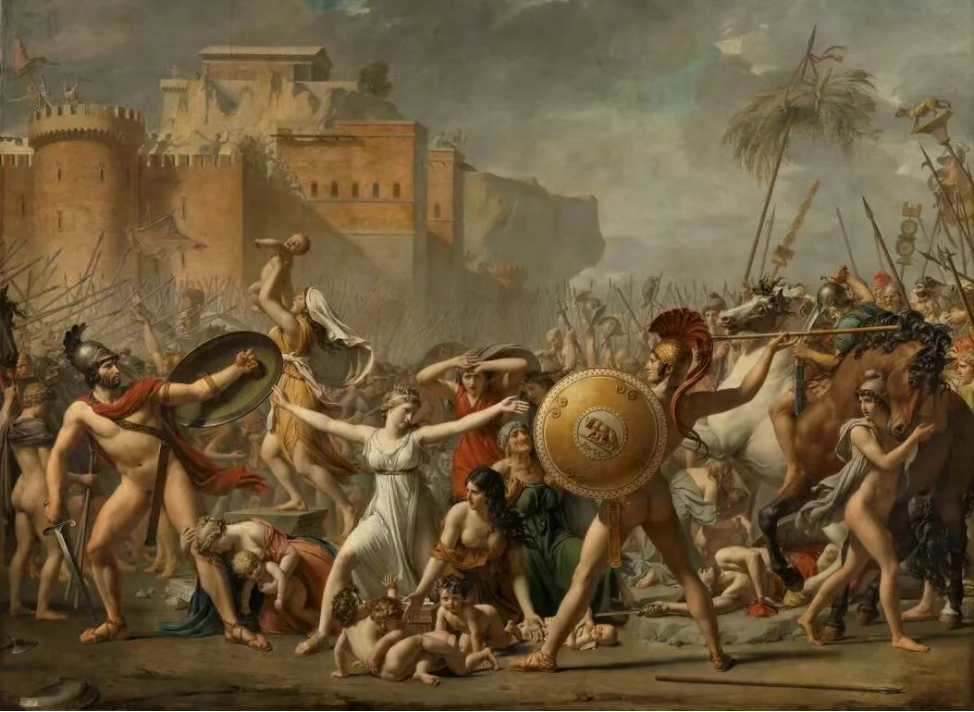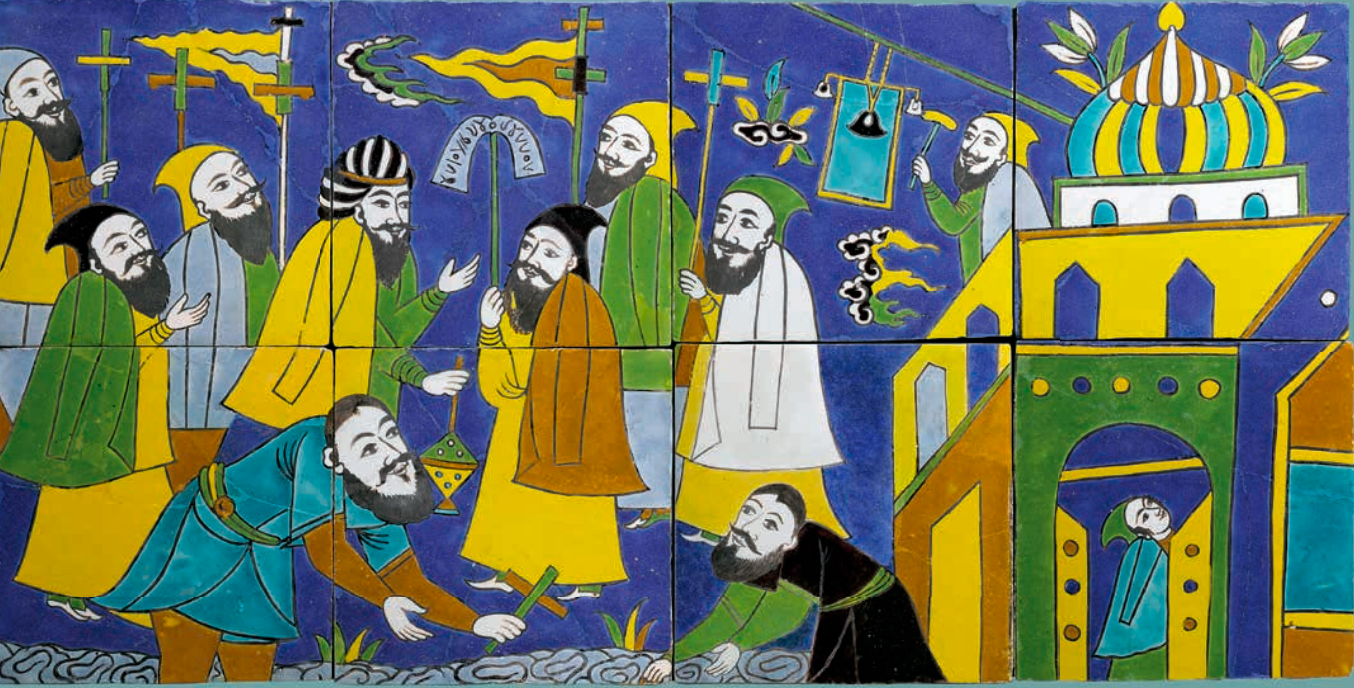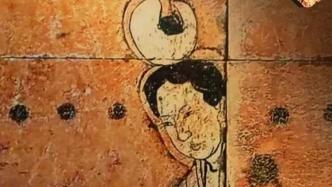
When the museum is closed, only 50 visitors will enter, and a themed activity related to history and cultural relics will be held in the museum scene, and a tent will be set up in the museum for one night. Would you like to? Also, what is it like to live in the Museum of Ancient Tombs and sleep next to the ancient tombs?
The Paper learned that four museums in the ancient capital of Luoyang will jointly launch the "Research and Study in the Ancient Capital - The First Overnight Project of a Museum of History and Humanities in the Country" next month. The project was launched as the highlight of this year's Luoyang Peony Cultural Festival in China. After the news was announced, it not only attracted the attention of cultural and museum lovers, but also triggered the discussion of "study and study travel", which has been in the ascendant in recent years.
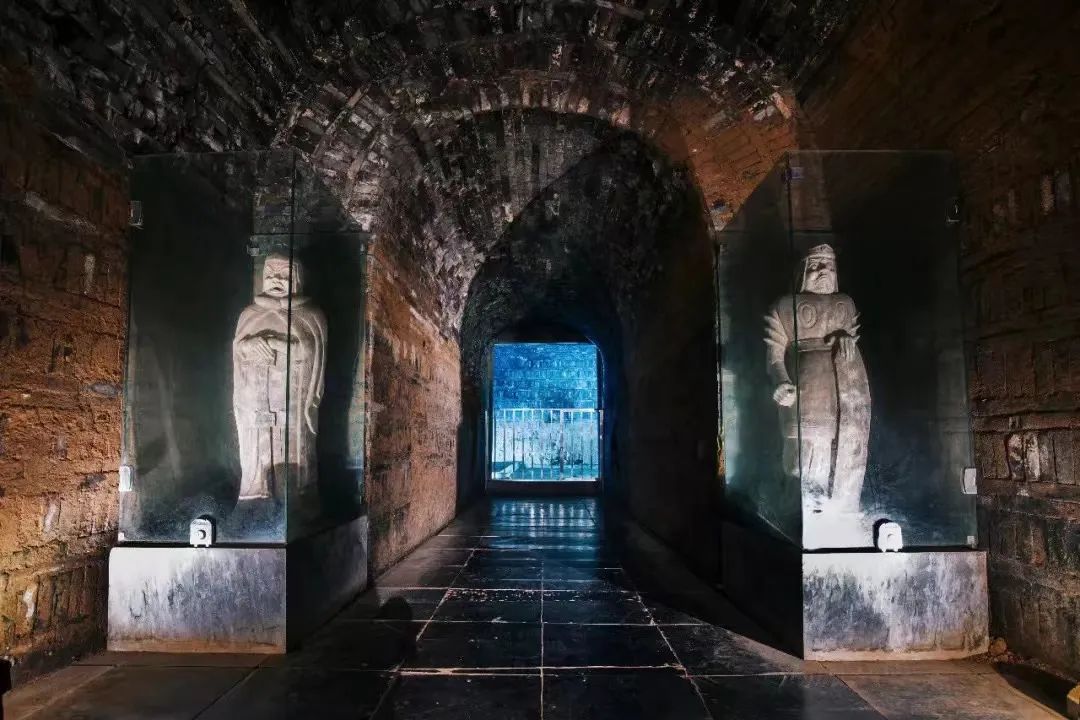
Luoyang Ancient Tomb Museum
In recent years, various forms of research and study activities are in the ascendant. The overnight stay project launched by the museum in Luoyang is undoubtedly one of the various research and study projects, but it combines "museum open at night", "immersive drama", "script killing", "camping". "Wait for the most popular elements of cultural tourism nowadays, which can be regarded as a bold innovation of cultural tourism activities. Some senior "script killing" fans are eager to try, thinking that this will be a rare opportunity to experience; there are also cultural and cultural enthusiasts who think that the price of 1688 yuan is too high, which makes people discouraged. A senior cultural and blog enthusiast active in Shanghai told The Paper directly that he supported it but would not try it. "Because the project is mainly about experience, and what I want to obtain is richer knowledge content."
Who will pay for the real version of "Night at the Museum"?
"Research in the Ancient Capital—National First Overnight Project of History and Humanities Museum" is planned to be held in April this year with the participation of four museums including Erlitou Xiadu Ruins Museum, Luoyang Museum, Luoyang Ancient Tomb Museum and Sui and Tang Dynasty Grand Canal Culture Museum in Luoyang First launched in the first ten days, the gameplay includes: immersive drama, script-killing reasoning games, traditional Chinese games, and research-themed courses, etc.
The first event will be the "Exploration of Ancient Tombs" theme event to be held at the Luoyang Ancient Tomb Museum on April 8. Only 50 people will participate in the event. The audience enters the venue at 18:00, and the script killing session starts from 18:30-22:30. After that, the audience will be assigned a tent to stay overnight in the museum, and will leave the museum at 7:30 the next day.
According to the official game introduction, "Tomb Quest" is a group of tourists who experience the "time-space retrospective instrument" to look back at the scene thousands of years ago when they visited the Luoyang Ancient Tomb Museum. The crack must use the "historical fluctuation conversion" function of the instrument to resurrect the owner of the ancient tomb who has been sleeping here for more than a thousand years, and learn from him the solution to the crisis...
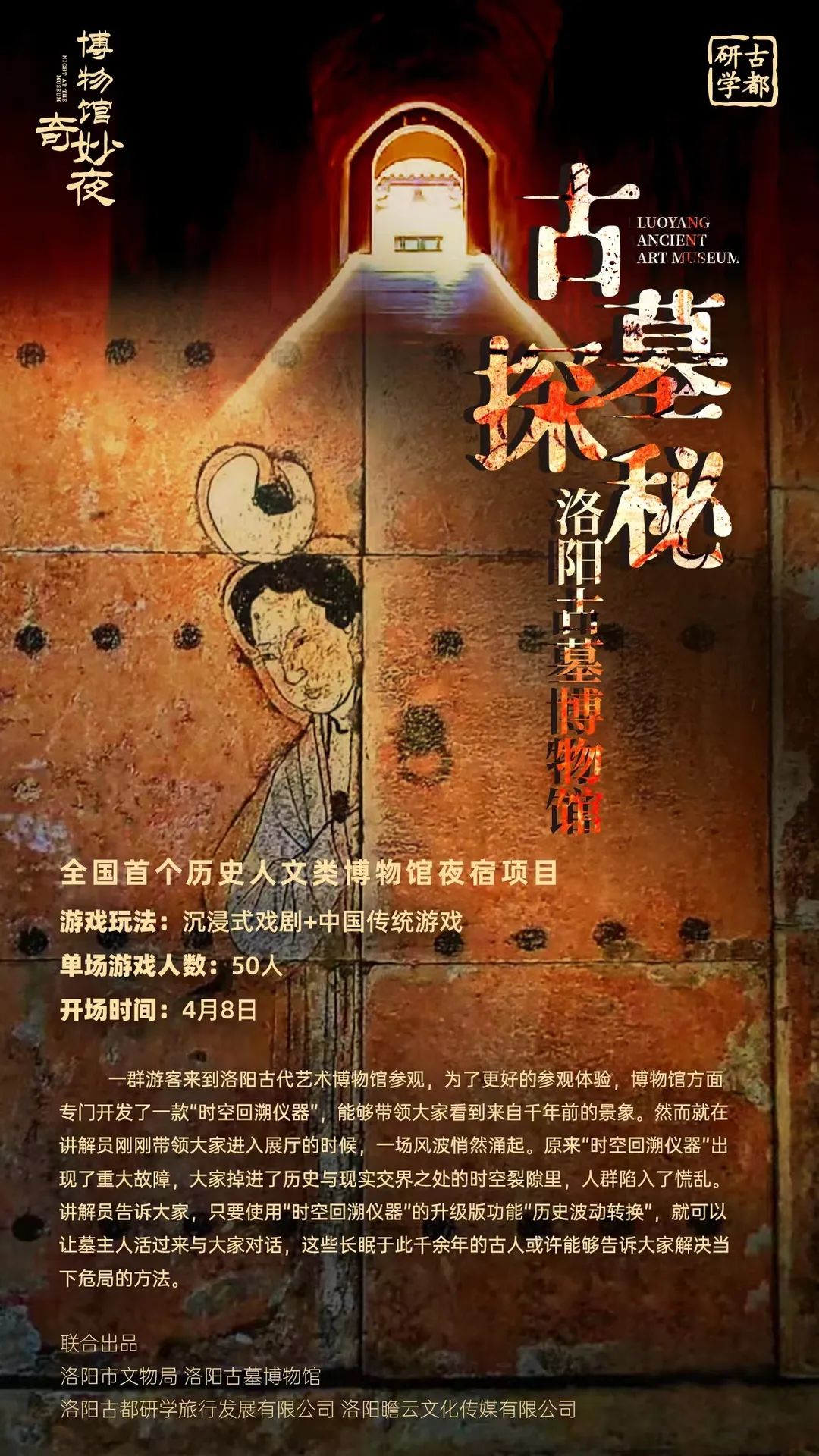
poster
Luoyang Museum's "Mysterious Guest - Cultural Relics Protection Project" includes cultural relics anthropomorphic performance + script reasoning game. Fifty tourists from all over the country ended their day's visit to Luoyang Museum, but the broadcast reminded that there will be a special exhibition at 7 p.m. Exhibited in Luoyang Museum. While the tourists were eagerly anticipating the opening of the special exhibition, cultural relic staff were surprised to find that the display cabinets under the curtain were empty...
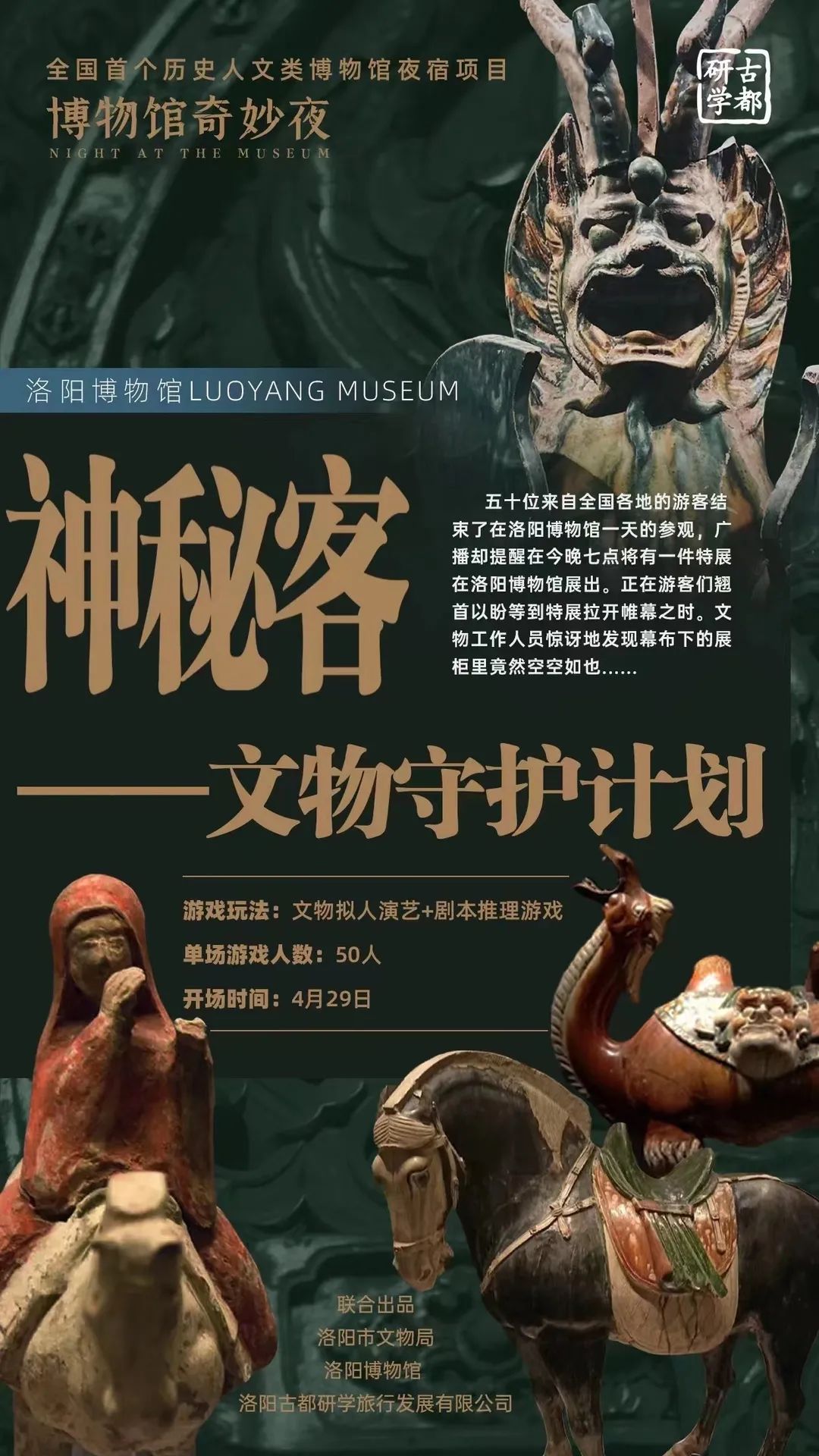
poster
The "Xiadu Strange Story" of Erlitou Xiadu Ruins Museum will start at night after the museum is closed. From the museum, there will be the sound of bronze colliding, and the broken shadows will be scattered in the museum... I don’t know what the follow-up plot will be? Based on the description of the game alone, it feels full of "suspense".
Talking about the original intention of the project, Ms. Zhang, the relevant person in charge of a Luoyang Travel Development Co., Ltd., which undertook the project, introduced in an interview with the media that many young people like script killing activities, so the company, with the support of the local cultural relics department, chose In order to combine the museum with the script killing. In this context, the company and a number of museums have launched the "Museum Wonderful Night" script-killing overnight stay project. Ms. Zhang said, "The museum is also very willing to try this model, hoping to innovate on the basis of traditional tours and increase the sense of experience and immersion."
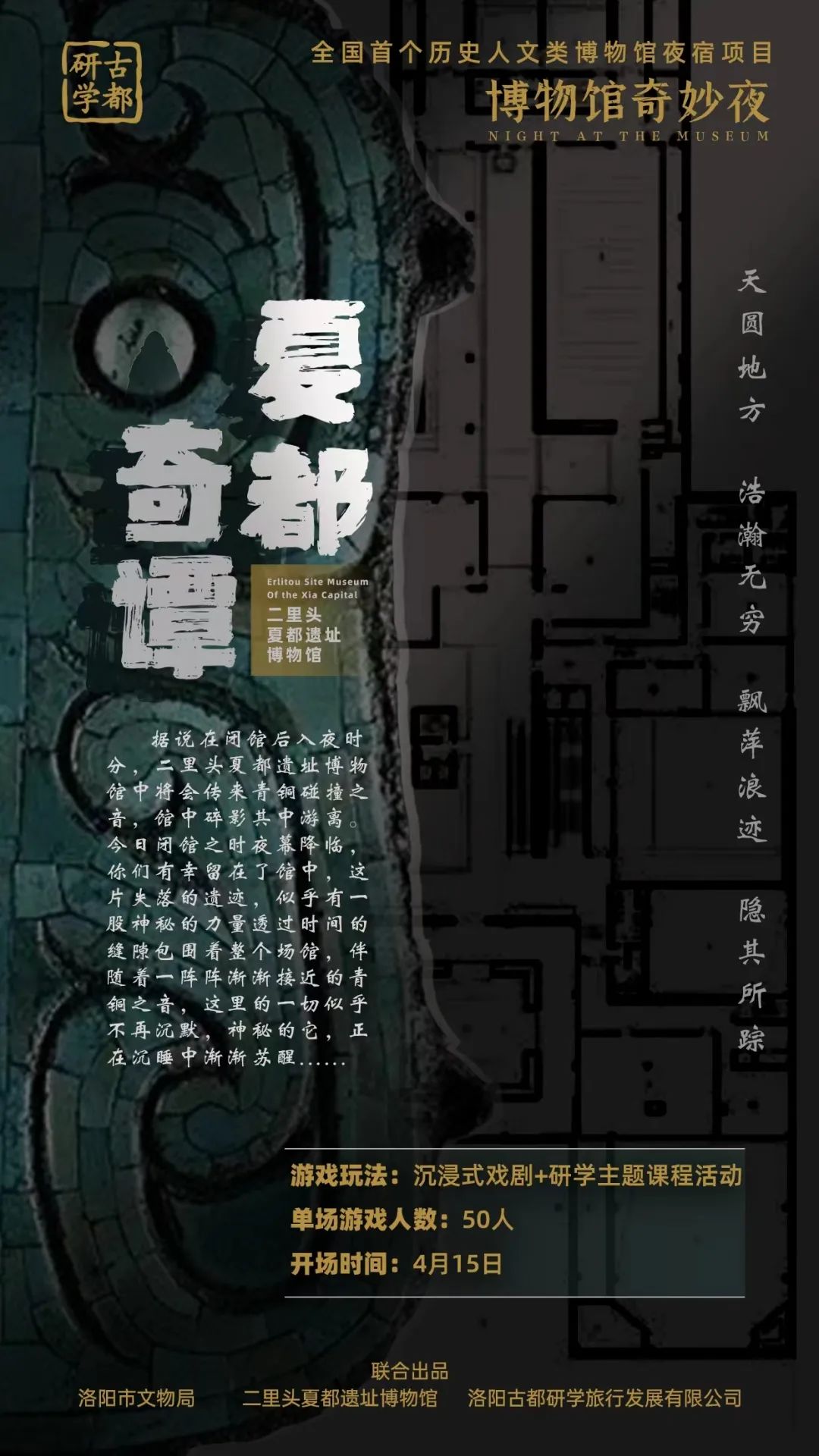
poster
There have not been many overnight stays in history and humanities museums of this scale before, but it is not uncommon to carry out similar overnight stays in natural history museums. Previously, Chongqing Natural History Museum and Zhejiang Natural History Museum had carried out night stays with the theme of dinosaurs. The Shanghai Ocean Aquarium has also launched overnight activities for student groups.
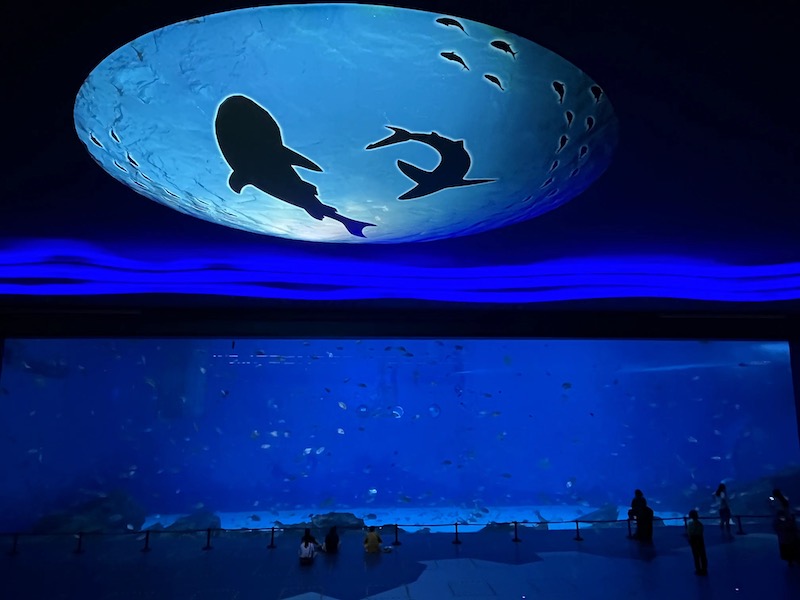
"Undersea Wonderful Night" project of an oceanarium in Shanghai
Ms. Chen, a citizen, told The Paper that her child participated in a "Underwater Wonderful Night Training Camp" project in Shanghai last summer. On the day of the visit, the teacher first led the "big bombing" of marine biological knowledge for a whole day. After nightfall, they got into their own exclusive sleeping bags and slept in the mysterious underwater world. When the children opened their eyes, they could see the ocean that is out of reach on weekdays Creatures swim around in front of our eyes... "This project is expensive, but through such a unique experience, it is worthwhile to deepen children's impression of the knowledge of marine biology and stimulate their interest in learning. Ms. Chen said that she hopes that there will be more similar cultural research projects to meet the consumption needs of audiences at different levels.
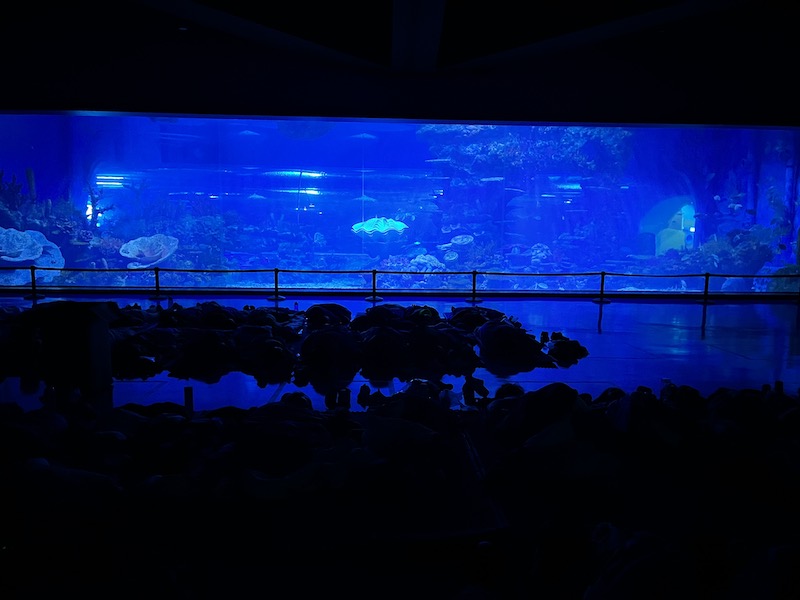
"Undersea Wonderful Night" project of an oceanarium in Shanghai
For the above-mentioned Luoyang ancient capital research project, some senior "script killing" fans are eager to try it, thinking that this is a rare opportunity to experience it; there are also cultural and museum enthusiasts who think that the price of 1688 yuan is too high, which makes people discouraged. Mr. He, a citizen, is a cultural and museum enthusiast active in Shanghai. He will "fly away" for a museum or a must-see exhibition to "follow exhibitions" across the country. The convener, he told The Paper, "There is a plan to go to Luoyang in the near future, but I probably won't go there." "Because it's not easy to go once, what I want is richer knowledge content." He believes that the project The audience is more likely to be those who come to pull weeds for the first time and focus on experience, rather than continuous followers like him who focus on knowledge learning. However, he thinks that it is worth trying for museums to launch this kind of research project. "After all, it is a market behavior, so let the market speak." It needs to be refined,” Mr. He said.
Innovation in museum exhibitions and activities should be encouraged
The "Museum Overnight Project" has attracted the attention of many people with its novel form, and it has a trend of "becoming popular before it is held". However, its high price of 1,688 yuan has made many people hesitate.
According to previous media reports, the high price of the project may be directly related to the high cost of expenditure. "Such scripts should be exclusive customization, which is the highest fee in the industry." This kind of drama consists of immersive drama, traditional Chinese games and The whole night experience consisting of overnight accommodation does require a higher cost. Only the customization of exclusive scripts requires the author to incorporate cultural relics and specific historical knowledge in the script into the script, and also combine the real scene creation of the museum. Such scripts generally start at a "six-figure start" in the industry.
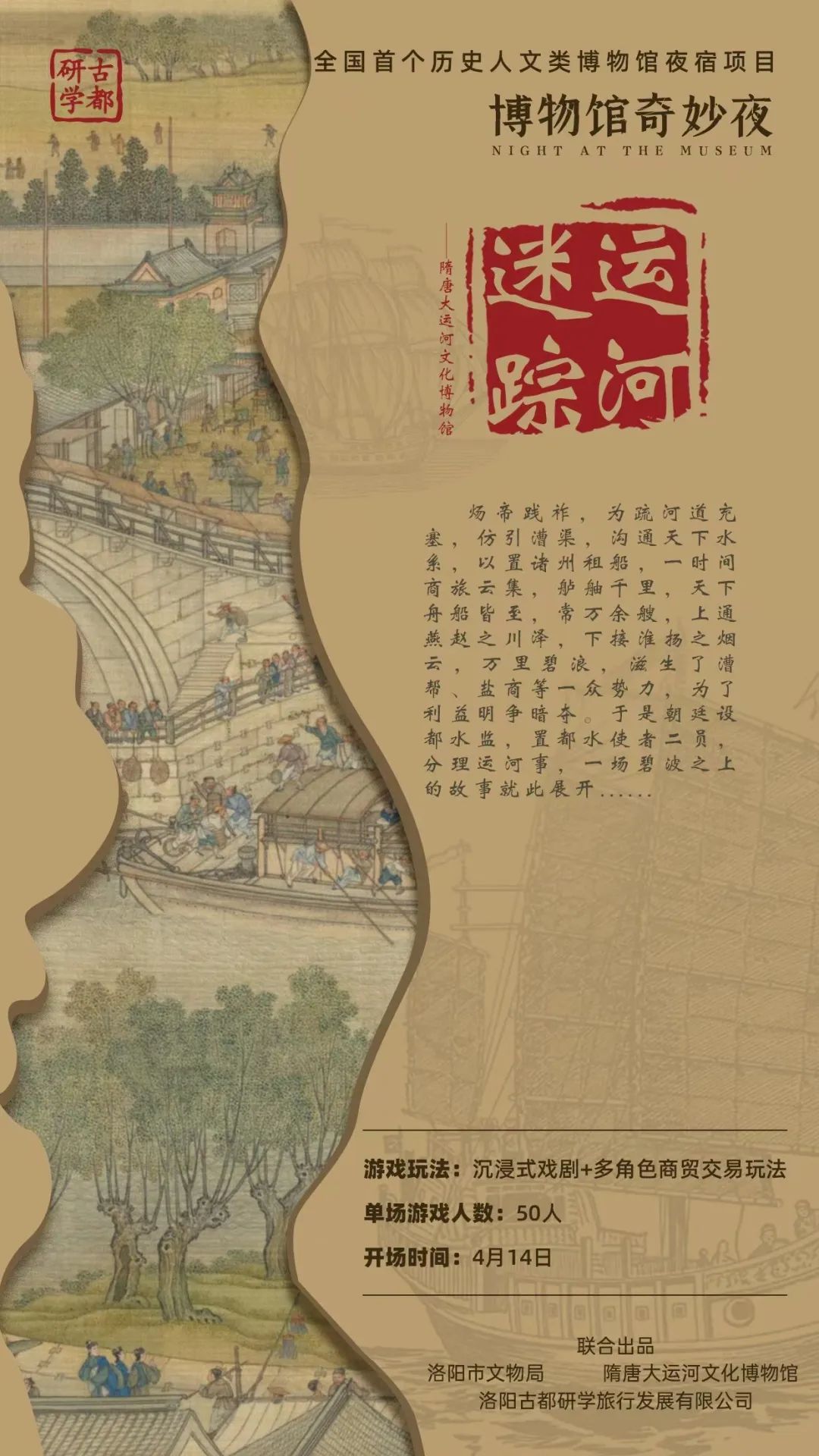
poster
The costs of operation and manpower should not be underestimated. Starting from February 11 this year, the Shanghai Museum opened two additional night shows every week. The operating expenditure of one night show alone exceeded 50,000 yuan, and 50-100 staff members were required to work overtime each time.
Some skeptical voices said that such high-priced activities will affect the function of the museum: "Museums should be public welfare and social benefits first. If the response to activities at this price is very good, then who is willing to spend effort on free activities in the future? superior?"
As a non-profit institution, state-owned museums should put social benefits first. When responding to the new social situation and innovating exhibitions and activities, it will always face public welfare "torture".
In recent years, laws and regulations at the national level have also continuously encouraged cultural and museum institutions to actively innovate. This point has been mentioned many times in the "Museum Management Measures". knowledge, and carry out paid service activities in the form of professional training and transfer of scientific and technological achievements.”
In January this year, the Shanghai Museum opened the first paid special exhibition in Shanghai since the state-owned museums implemented the free and open policy in 2008, and the market feedback was enthusiastic.
People in the industry said that there is no conflict between the museum's special exhibition fees and the museum's public welfare. At the level of national policies and regulations, neither the state nor the local government prohibits exhibition fees. Relevant national documents clearly stipulate that for some special (temporary) exhibitions held in accordance with market-oriented operations, the ticket price can be determined according to the actual situation. As a non-profit institution, museums mainly charge public welfare fares that cover the cost of people, property and property.
How to carry out "study trip"?
In recent years, with the rise of cultural archeology in China and the citizens' demand for cultural consumption, various forms of research projects are in the ascendant. People in the industry believe that research is a purposeful off-campus visit and experience practice. It is essentially a learning experience under another rhythm that is different from the school classroom education form. It allows people to obtain a learning experience in a relatively good and relaxed atmosphere. Research was originally proposed by the education system, and it was also influenced by foreign countries. Japan has a very complete research system, and the supporting services of the whole society are also done very well. This kind of research activities is of great significance to the improvement of students' overall ability.
Chen Zenglu, curator of the Wu Culture Museum, said in an interview with The Paper about research activities that research is a good thing and should be encouraged. As a public cultural institution, museums have publicity as their basic attribute. Museums must have the function of providing public cultural services to the public, and research, exhibitions, and educational activities are a concrete manifestation of their services to the public.
He believes that museums must first have an open mind and provide a platform; secondly, clarify their own rules and requirements; thirdly, for resources that museums do not have, more social institutions should be allowed to use commercial and non-commercial methods At the same time, we cannot completely rely on social institutions, but we must build our own core competitiveness.
In an interview with The Paper, a professional from a university said that governments at all levels in my country are guiding and supporting "research travel", and hope to make breakthroughs in fees, security, education models, etc., which fully reflects the public welfare of the activities. Sex, but also to ensure safety and effectiveness. What's more, explore the progression from activities to mechanism building.
"For museums, as non-profit institutions, even if they charge fees for their research activities and projects, they are basically public welfare fees covering the cost of human resources and property, which are far lower than those of social institutions. Whether it is travel, social institutions, or cooperation between the two or multiple parties, the key is to seek "education", that is, to fully rely on the uniqueness of "object-based learning" in museums." The professional said.
